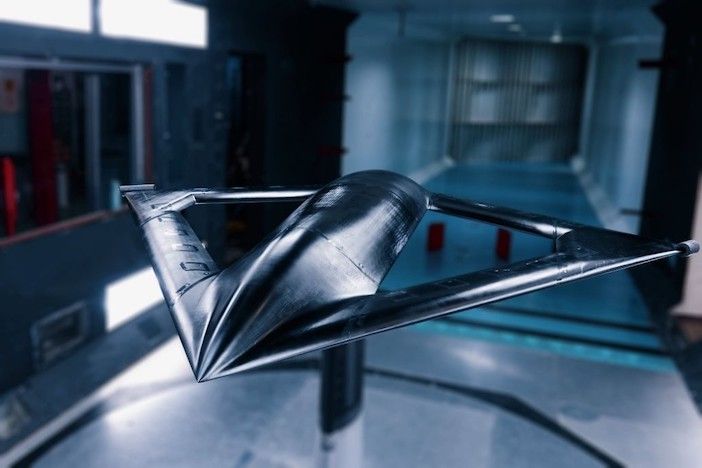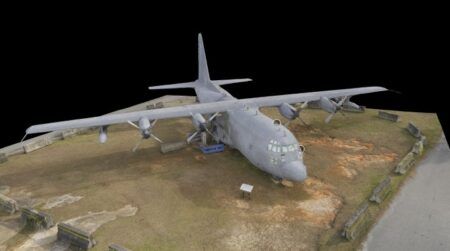A DARPA research project developing new ways to control aircraft with actuators and effectors on aircraft is moving to its next phase.
The Control of Revolutionary Aircraft with Novel Effectors (CRANE) program aims to demonstrate how active flow control (AFC) can be used in aircraft and the benefits it could bring in terms of reduced cost, weight and improved performance and reliability
AFC uses actuators and effectors to alter the flow of air over an aircraft to alter its course and speed, instead of using ailerons, rudders, and flaps for control surfaces. AFC is different from passive control features, such as vortex generators on a wing for flow separation control or chevrons on an exhaust for noise mitigation, which can be seen as being always ‘on’ .
Aurora Flight Sciences and Lockheed Martin Corporation are now entering Phase 1 of the CRANE program, which includes system requirements development, initial design work, software development, and initial airworthiness activities that culminate in a preliminary design review.
Alexander Walan, program manager for CRANE in DARPA’s Tactical Technology Office said, “The Phase 1 researchers have completed conceptual designs of novel flight demonstration configurations with quantifiable performance benefits enabled by active flow control.
“Multiple AFC technologies will continue to be matured through advanced analytical and testing activities for incorporation in relevant demonstrator designs.”
Existing work in CRANE being performed for Phase 0 includes the development and maturation of AFC design software and databases for inclusion in future aircraft development activities. Georgia Tech Research Corporation’s Phase 0 work has been extended to allow further refinement of these tools for transition to relevant military and government partners.
“In addition to its role in upcoming flight test activities, AFC design software is a critical piece for the inclusion of AFC technologies in future defense and commercial aircraft designs,” said Walan. “The CRANE program can provide a comprehensive AFC database and the associated tools to future aircraft designers.
“The continuation of Georgia Tech Research Corporation’s work in this area will ensure this valuable capability is successfully transitioned to the aircraft design community.”
DARPA has also selected BAE Systems, to initiate a Phase 0 conceptual design activity. Phase 0 is focused on AFC trade space exploration and risk reduction activities. Under the recent Phase 0 award, BAE Systems will evaluate the benefits of using AFC in different air vehicle concepts leading to a conceptual design review.
“All of the CRANE performers are exploring unique configurations and performance objectives; this additional performer adds to the diverse concepts and technologies being matured by the CRANE program,” said Walan.





